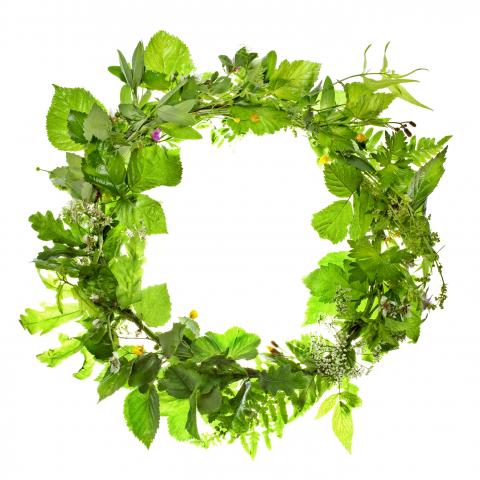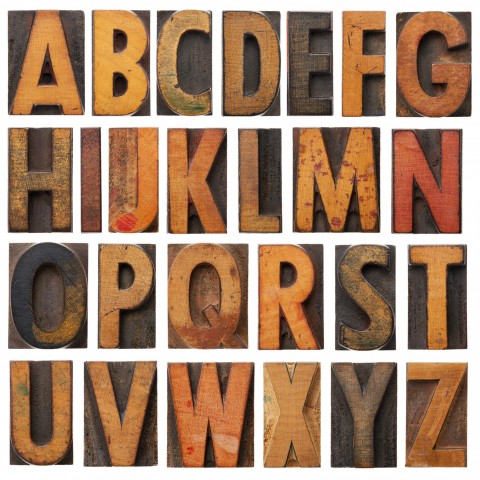The Day of Bulgarian Education and Culture and Slavonic Literature (we know, it’s a mouthful…) is a day to focus on the Cyrillic alphabet, as well as the Glagolitic alphabet. Created by St. Cyril and Methodius, the Glagolitic alphabet structure has helped to shape the Bulgarian language as it is today (using the Cyrillic alphabet), making this a day worth its salt.
Learn more about how St. Cyril and St. Methodius impacted the eventual growth of language in Bulgaria below. By learning about Bulgarian Education and Culture Day, you’re opening yourself up to a unique aspect of Bulgarian culture. And as any language learner can tell you, knowing the culture of your target language’s country is a vital step in the language-learning process!
At BulgarianPod101.com, we hope to make this a fun and informative learning adventure!
1. What is Education and Culture, and Slavonic Literature Day?
Day of Bulgarian Education and Culture is the day of celebrating the creation of the so-called glagolitsa, which is a type of writing system and actually is the first Slavic alphabet. It was created by the brothers Cyril and Methodius, also known as the Brothers from Thessaloniki. They used the Glagolitic alphabet to write the translations of the Bible, and in this way they helped to preserve the cultural heritage for the future Slavic peoples.
2. When is Bulgarian Education and Culture, and Slavonic Literature Day?
Each year, Bulgarians celebrate Education and Culture, and Slavonic Literature Day on May 24.
3. Reading Practice: Celebrations for this Bulgarian Holiday
How do Bulgarians celebrate Bulgarian Education and Culture, and Slavonic Literature Day? Read the Bulgarian text below to find out, and find the English translation directly below it.
—
Денят на българската просвета и култура и на славянската писменост започва да се чества за пръв път в епохата на българското Възраждане като ден за почитане делото на братята Кирил и Методий. Така този ден става един от начините българите да покажат своето признание и преклонение пред образованието, науката и културата. През 1990 година той става официален празник на Република България.
Химн на този празник е песента Върви, народе възродени, която бива изпълнявана всяка година на честванията на 24-ти май. Празненствата включват тържествени програми с музикални изпълнения на хорови песни и на народни танци. Обикновено училищата и университетите имат празнична украса с венци и цветя, както и богата културна програма. Много често се организират и шествия с участието на ученици и преподаватели.
Песента Върви, народе възродени е стихотворение, написано от поета Стоян Михайловски, което вдъхновява композитора Панайот Пипков за музиката към текста. Българите обичат да проверяват дали другите знаят текста и автора на песента.
—
The Day of the Bulgarian Education and Culture, and Slavonic Literature was first celebrated in the period of the Bulgarian Revival as a day for paying tribute to the work of the brothers Cyril and Methodius. It thus became one of the ways for the Bulgarian people to show their recognition and admiration for education, science, and culture. In 1990, it became a public holiday in the Republic of Bulgaria.
The anthem of this holiday is the song March Ahead, Oh, Revived People which is performed every year at the celebrations of May 24. The festivities include celebratory programs with musical performances of choral songs and folk dances. Usually, the schools and the universities have festive decorations of wreaths and flowers as well as prolific cultural program. Very often, processions are organized with the participation of students and teachers.
The song March Ahead, Oh, Revived People is a poem written by the poet Stoyan Mihaylovski which inspires the composer Panayot Pipkov to write music for the lyrics. Bulgarians like checking if others know the text and the author of the song.
4. Glagolitic & Cyrillic Alphabet Connection
Do you know what the connection is between the glagolitsa (Glagolitic alphabet) and the kirilitsa (Cyrillic alphabet), which is used nowadays?
The Saint brothers Cyril and Methodius created the glagolitsa. The kirilitsa appeared in Bulgaria at the end of the ninth century. During the 10th – 11th centuries, the kirilitsa was used alongside the glagolitsa, but it gradually started replacing it in the twelfth century.
5. Useful Vocabulary for Bulgarian Culture Day
Here’s some vocabulary you should know for Education and Culture, and Slavonic Literature Day!
- Библиотека (biblioteka) — library
- Училище (uchilishte) — school
- Литература (literatura) — literature
- Образование (obrazovanie) — education
- Ден на българската просвета и култура и на славянската писменост (Den na balgarskata prosveta i kultura i na slavyanskata pismenost) — Bulgarian Education and Culture, and Slavonic Literature Day
- Азбука (azbuka) — alphabet
- Кирилица (kirilitsa) — Cyrillic alphabet
- Култура (kultura) — culture
- Св.св. Кирил и Методий (Sv.sv. Kiril i Metodiy) — St. Cyril and St. Methodius
- Глаголица (glagolitsa) — Glagolitic alphabet
- Просвещение (prosveshtenie) — enlightenment
- Венец (venets) — wreath
To hear each of these vocabulary words pronounced (yes, even the long holiday name!), check out our relevant vocabulary list. Here, you’ll find each word accompanied by an audio file of its pronunciation.
Conclusion
What do you think of Bulgarian Education and Culture, and Slavonic Literature Day? Does your country have a holiday celebrating any of these things? Let us know in the comments! We want to hear from you! 🙂
If you’re looking to learn more about Bulgarian culture and the language, visit us at BulgarianPod101.com. Make use of our insightful blog posts and free vocabulary lists, and chat with fellow Bulgarian learners on our online community! If you want a one-on-one learning experience, you can also create (or upgrade to) a Premium Plus account to take advantage of our MyTeacher program.
Learning a new language can be hard, and its culture even trickier, but know that your hard work will pay off! We believe in you—you’ll become a master before you know it!













